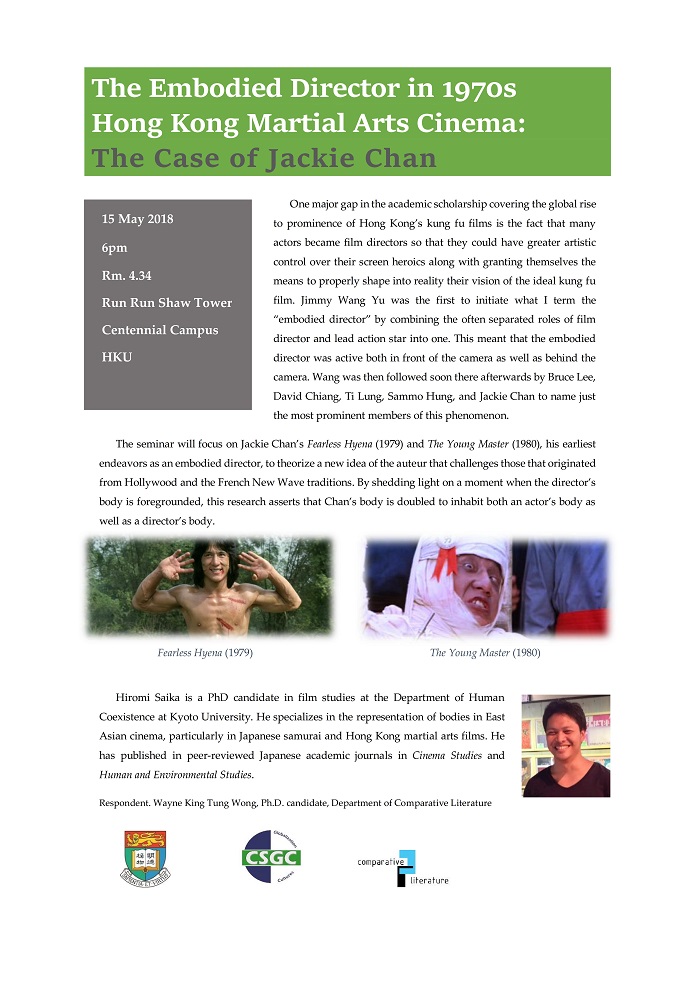
Department of Comparative Literature
The Embodied Director in 1970s Hong Kong Martial Arts Cinema: The Case of Jackie Chan
Date: 15 May 2018
Time: 6pm
Venue: Rm. 4.34, Run Run Shaw Tower, Centennial Campus, HKU
One major gap in the academic scholarship covering the global rise to prominence of Hong Kong’s kung fu films is the fact that many actors became film directors so that they could have greater artistic control over their screen heroics along with granting themselves the means to properly shape into reality their vision of the ideal kung fu film. Jimmy Wang Yu was the first to initiate what I term the “embodied director” by combining the often separated roles of film director and lead action star into one. This meant that the embodied director was active both in front of the camera as well as behind the camera. Wang was then followed soon there afterwards by Bruce Lee, David Chiang, Ti Lung, Sammo Hung, and Jackie Chan to name just the most prominent members of this phenomenon.
The seminar will focus on Jackie Chan’s Fearless Hyena (1979) and The Young Master (1980), his earliest endeavors as an embodied director, to theorize a new idea of the auteur that challenges those that originated from Hollywood and the French New Wave traditions. By shedding light on a moment when the director’s body is foregrounded, this research asserts that Chan’s body is doubled to inhabit both an actor’s body as well as a director’s body.
Hiromi Saika is a PhD candidate in film studies at the Department of Human Coexistence at Kyoto University. He specializes in the representation of bodies in East Asian cinema, particularly in Japanese samurai and Hong Kong martial arts films. He has published in peer-reviewed Japanese academic journals in Cinema Studies and Human and Environmental Studies.
